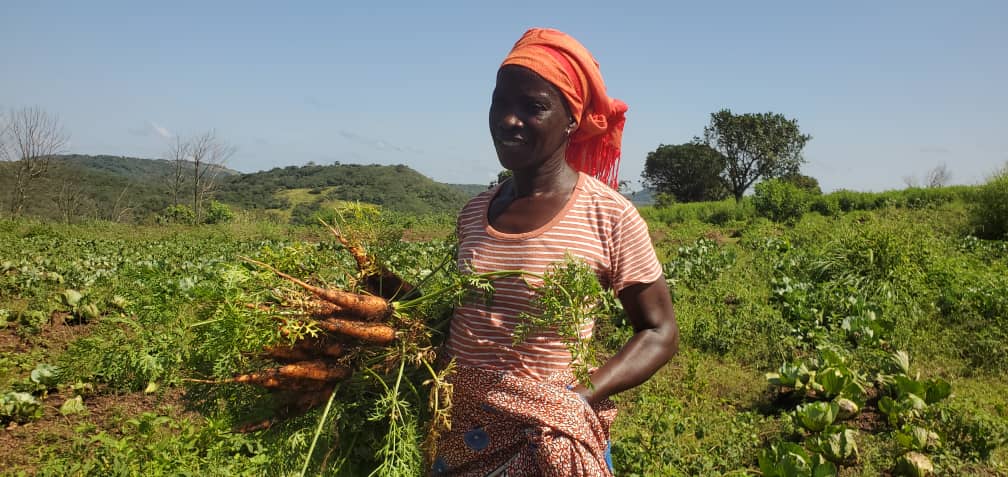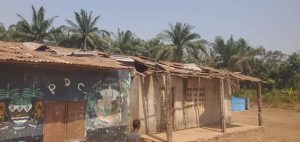By George Philip Jambawai
Koinadugu District, Sierra Leone, In the glamorous highlands of Kabala, a quiet agricultural revolution is reshaping communities and revitalizing the landscape. Spearheaded by the Agricultural Value Chain Development Project (AVDP)and the Ministry of Agriculture, farmers across Koinadugu are embracing climate-smart practices, particularly empowering women in vegetable farming.
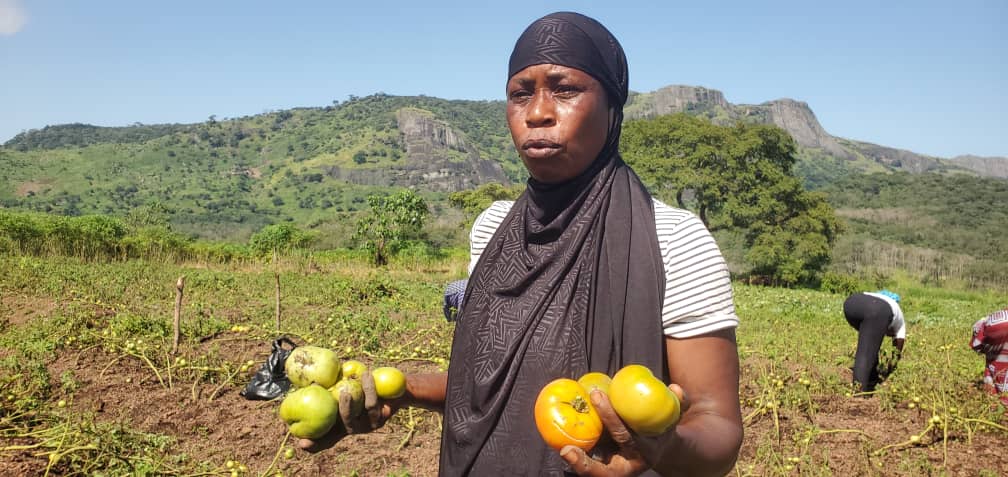
This initiative, in collaboration with the Ministry of Agriculture, has increased yields and lessened the reliance on environmentally damaging farming techniques, creating a promising future for sustainable agriculture in the region.
On October 25, 2024, a visit to Kabala revealed how climate-resilient techniques have transformed the livelihoods of farmers, particularly women who form the backbone of the district’s agricultural economy. Through the support of AVDP, these women are using compost manure, a mixture of cow dung, rice husks, and animal feces, in place of chemical fertilizers—a change that is boosting productivity while preserving the environment.
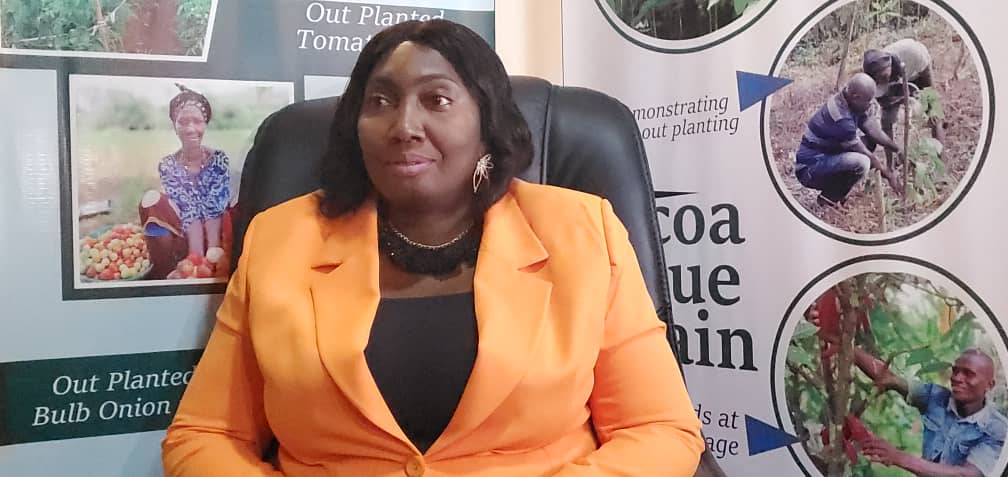
I met One of the pioneers of this approach, Aminata Malla, who is a member of the Kendenya and Alamdulai vegetable farming group. “Compost manure is more reliable and sustainable than the chemical fertilizers we used before,” Malla explains. “With compost, we’re able to overcome the high cost and difficulties of accessing chemical fertilizers.”
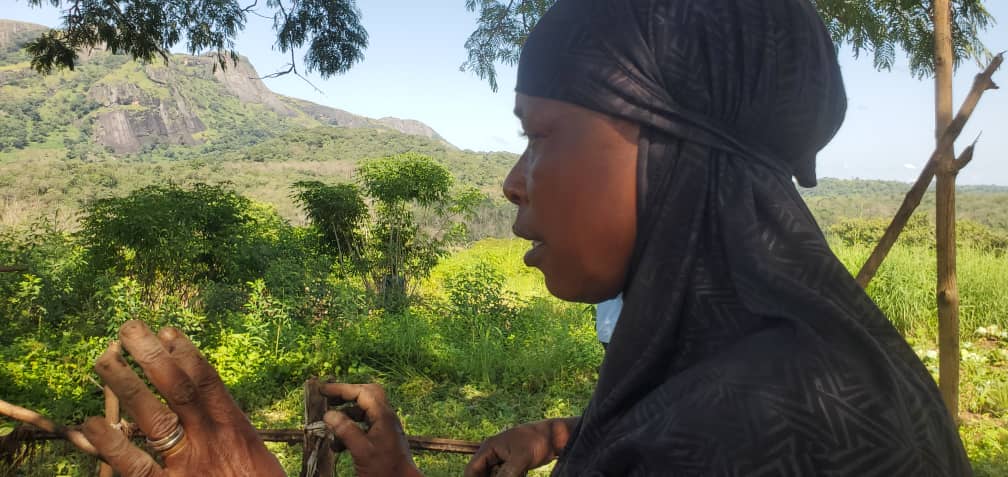
The adoption of composting has been transformative, as it enriches the soil naturally, reducing dependence on costly chemical inputs. Koinadugu’s journey towards sustainable farming began over a year ago when a group of vegetable farmers participated in a study tour to Gambia, sponsored by AVDP. There, they learned advanced composting methods and eco-friendly farming techniques, which they’ve since implemented with notable success.
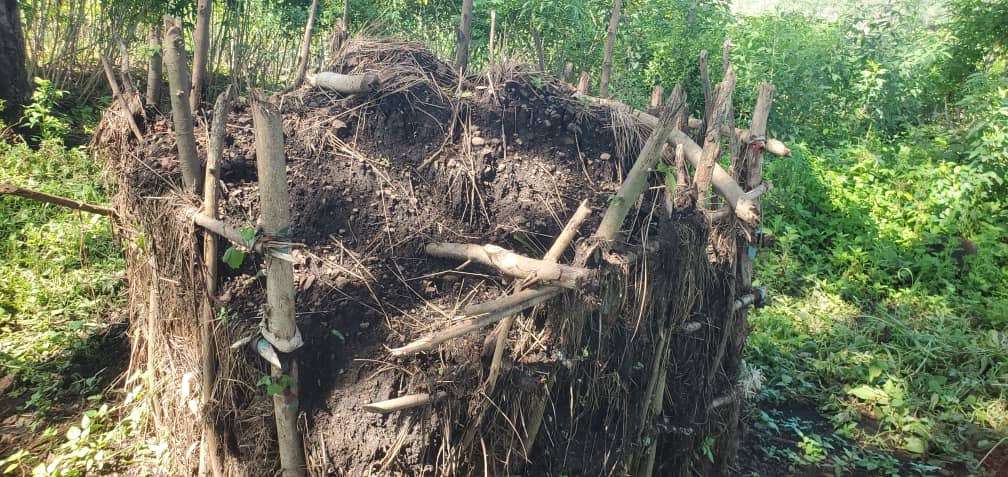
Crops such as tomatoes, carrots, onions, and cucumbers have shown remarkable growth, leading to increased financial returns for farmers who rely on vegetable farming for their livelihoods.
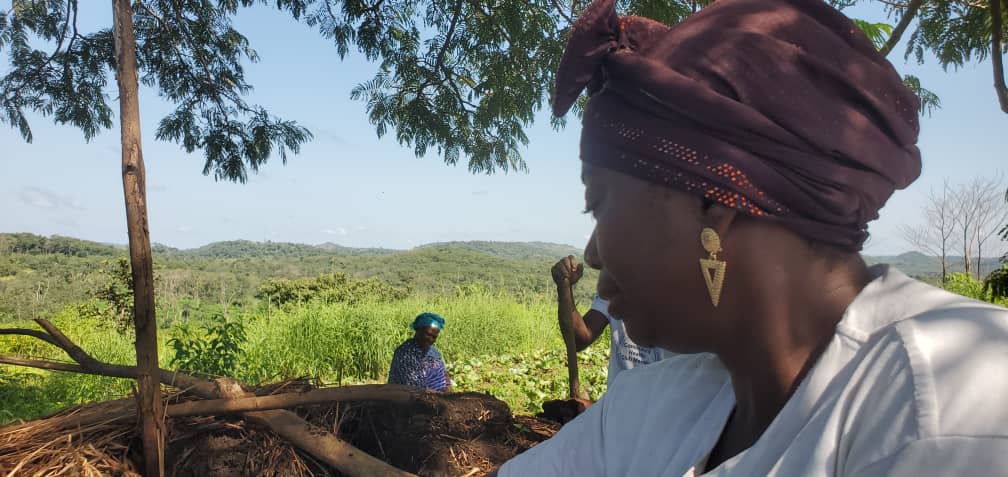
Sara Mansaray of the Munafa Farmers Association attests to the economic impact of climate-smart agriculture. “By using compost manure, we spend less but make more,” she shares, describing how they collect animal waste and household compost, allowing it to decompose over eight to ten weeks before application. “With compost, we don’t need chemical fertilizers, and the soil is richer,” she adds.
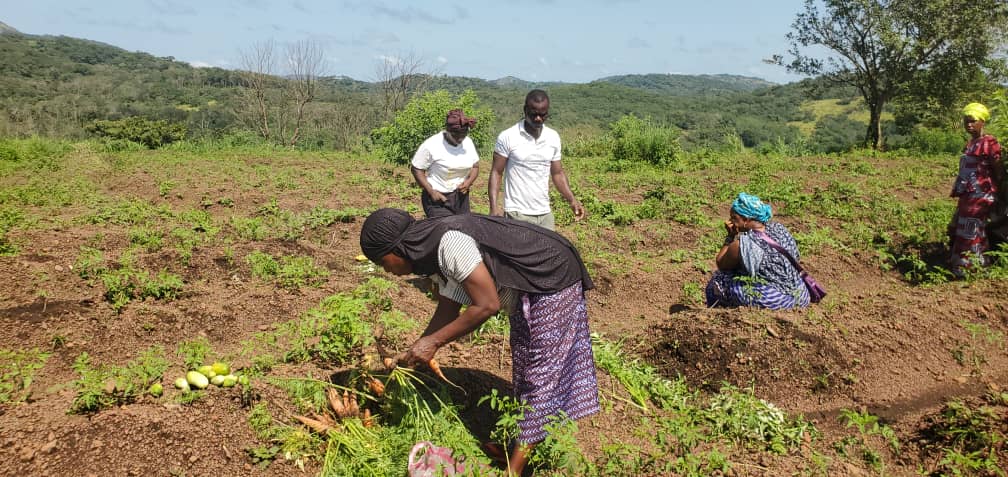
For farmers like Sara Mara of the Senekadugu Serious Group, the financial rewards have been significant. Last year, her group earned 28,000 leones after investing less than ten thousand leones, marking a substantial return on their investment. “That was our first year using compost,” says Mara. “With the results we’re seeing, we’re hopeful of even higher yields this year.”
Monica Kwame Greene, Project Manager for AVDP, highlights the broader goals of the climate-smart initiative. “AVDP is a climate resilience program,” she explains. “This is why we sent farmers to the Gambia to learn the compost system firsthand because the environment is sustained by how you maintain it. What you put into it is what you get out.” Greene emphasizes that by supporting swamp rice farming as well, AVDP and the Ministry of Agriculture are promoting sustainable practices that ensure long-term agricultural viability.
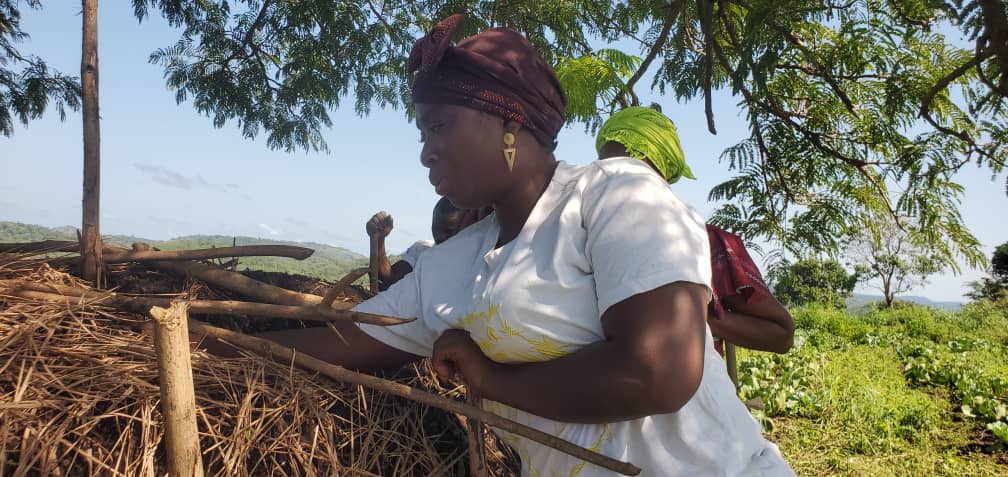
The shift towards climate-smart agriculture has not only boosted yields but also brought new stability to the district’s food supply, advancing the Feed Salone project, a priority on the government’s agenda. Farmers who previously depended on practices like burning and chemical fertilizers are now adopting eco-friendly techniques that improve soil health and contribute to a healthier ecosystem.
